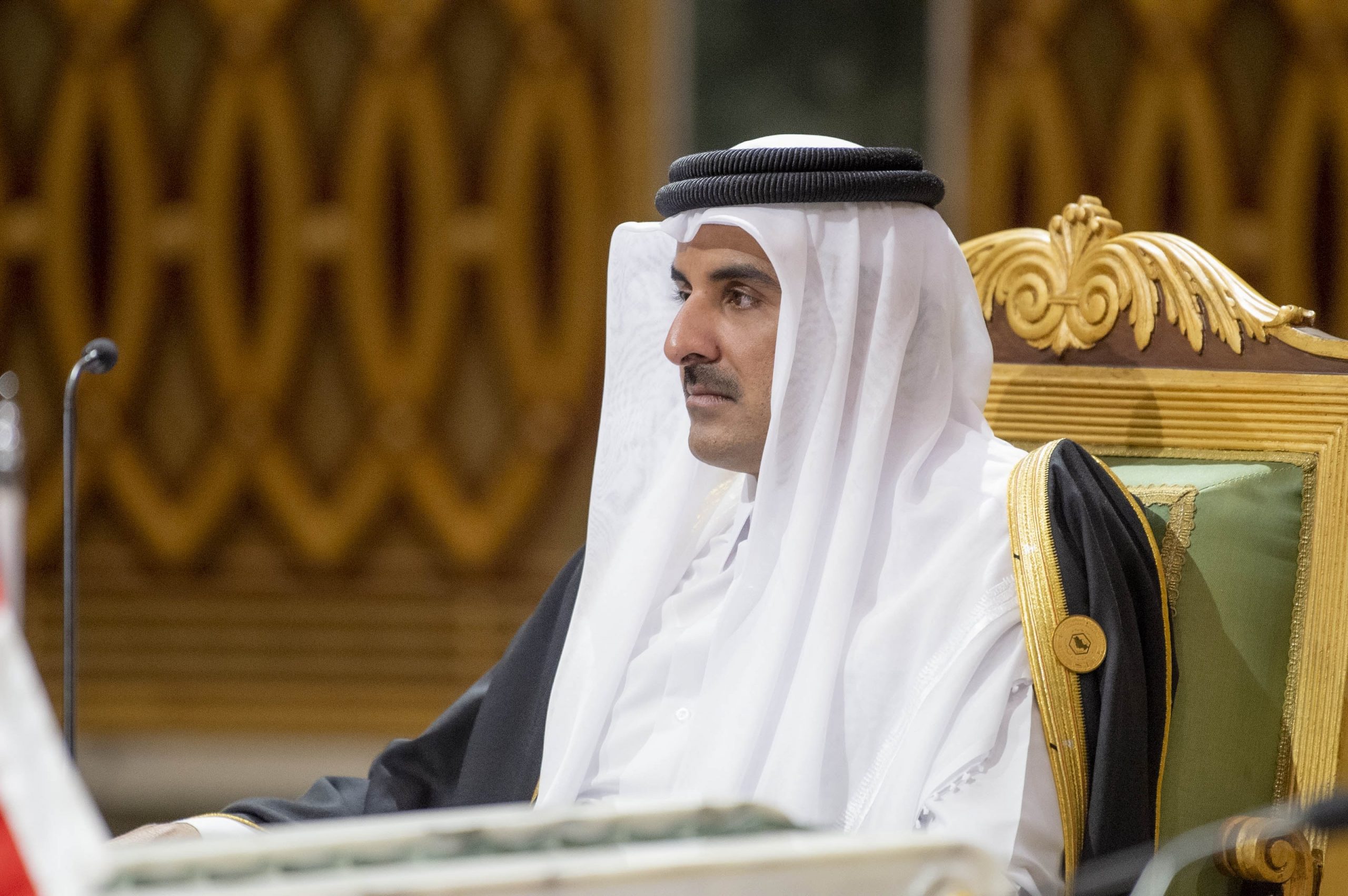Amir Sheikh Tamim believes that the implementation of gradual reforms is the best way to prevent turbulence within the Middle East in the future.
Socio-economic and political issues that sparked the Arab Spring like “poverty, unemployment, unemployed graduates” continue to be unresolved, Qatar’s Amir Sheikh Tamim bin Hamad Al-Thani told French magazine Le Point in a wide-reaching interview, published on Wednesday.
With instability continuing to shake a number of Arab countries around the region, the amir noted that “the deep roots of the Arab Spring” remain.
The only interviews the amir has granted prior to this, were to CNN in 2014 and CBS in 2017.
The interview featured the Qatari leader discussing a number of national, regional, and international issues.
“Poverty, unemployment, unemployed graduates… have we solved these problems? No, on the contrary, they have worsened. If we don’t address them, the events that they caused may repeat themselves,” said Amir Tamim.
Compared to a global average of less than 15%, youth unemployment in the Middle East and North Africa was approximately 25% in 2008. The unemployment rates were greater among young persons who had graduated from college.
Young people, a sizeable and expanding demographic in the area, were left without many realistic opportunities to pursue a career that would support them and their families.
Today, some Middle Eastern nations have youth unemployment rates that are nearly twice as high as the global average and have increased 2.5 times faster than the global average between 2010 and 2021.
The economic potential of the region is significantly diminished by these figures. According to the United Nations, the region needs to add more than 33.3 million new jobs by 2030 in order to stabilise youth unemployment, lower the general unemployment rate to 5% and be able to accommodate the enormous influx of young people.
As a Middle Eastern country with a key diplomatic role, Qatar believes in empowering youth globally to find a way out of such crises.
The amir believes that the implementation of gradual reforms is the best way to prevent turbulence in the future. “We must give real hope to people, not words.”
“Qatar promised to educate 10 million out-of-school children and we have surpassed that promise. Soon we will reach 15 million primary school children. We also need to provide jobs, opportunities, but also let them express their opinions and differences,” he said.
Qatar has established programmes to help train more than 2 million young people in the Arab world and provide them with job opportunities.
The Qatari leader gave Tunisia as an example, where he stated that the Qatari government helps people start their own businesses. “Tens of thousands of young people are benefiting from this project,” he told Le Point.
As a response to the ongoing war waged by the Bashar Al Assad’s regime, Qatar has also taken the lead in efforts to aid Syrian refugees who have been driven from their homes. Despite several countries’ normalisation with the Syrian regime, Qatar continues to reject such a move because of the atrocities committed against Syrian civilians.
The amir urged for resolving Syria’s key issue, while acknowledging Europe’s role in hosting Syrian refugees.
“Why do we accept that a leader massacres his people and expels millions of refugees from his country? As human beings, is this acceptable? What’s more, when we know that these refugees are going to come to us and that this will create problems?”
Upon being asked whether he finds time to sleep through the crises hitting the region, he responded, “There are certainly many things that can prevent you from sleeping peacefully, but I am very proud of my people and all those who live in Qatar.”
The amir further emphasised that “the most important issue is the Israeli-Palestinian question.”
“As long as it is not resolved, the region will unfortunately not be at peace. And there is also Syria, Libya, Yemen… this is why I am concerned for our youth.”







